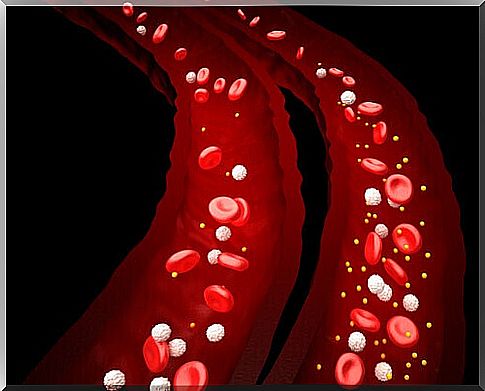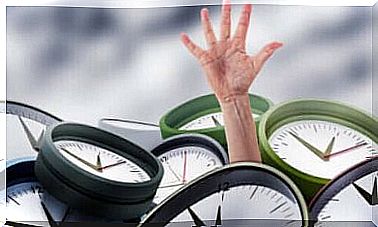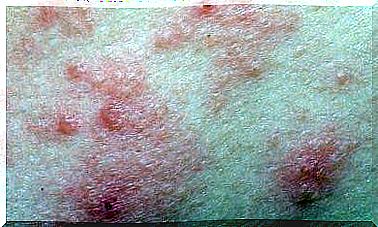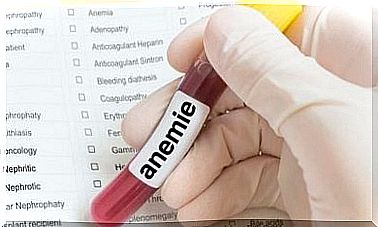What Are The Symptoms Of Hypoglycemia?

People may confuse the symptoms of hypoglycemia with other medical conditions when the drop in blood sugar is mild. In fact, if you eat foods rich in carbohydrates, it can go unnoticed.
Hypoglycemia is when the blood glucose level, in other words the blood sugar level, falls. To make this diagnosis, blood sugar must be below 70 milligrams per deciliter (mg/dL).
While we will explain below that the causes vary, it is important to first understand how the body obtains glucose. The mechanism for obtaining it explains why the symptoms of hypoglycemia occur when the body fails at some point.
Humans get glucose from food. Not all foods containing it are necessarily sugary or sweet. So the body also gets glucose molecules from fruits and vegetables.
To be effective, glucose must enter the cells of tissues. There it is converted into energy for cell functions. Insulin regulates the process of bringing glucose into cells.
Insulin is a hormone secreted by the pancreas. It regulates the entry of sugar circulating in the blood into the cells. This is the hormone that doesn’t work well in people with diabetes.
Glucagon, another hormone that the pancreas produces, is the insulin antagonist. Glucagon’s function is to stimulate the liver to break down the glycogen stored therein and to circulate blood glucose. Broadly speaking, we can say that insulin lowers blood glucose while glucagon raises it.
In that hormonal ‘game’, in combination with other factors, the symptoms of hypoglycemia can appear. It will be mild or severe depending on the amount of glucose circulating in the blood.
The Symptoms of Mild Hypoglycemia

Often the symptoms go unnoticed when the symptoms of mild hypoglycemia occur. This is a drop in blood sugar that is not powerful enough to negatively affect vital organs. The phenomena include:
- Excessive sweating.
- Headache.
- Dizziness, motor coordination and impaired vision.
- drowsiness. Sometimes, more than drowsiness, it manifests as difficulty concentrating, as if the mind cannot think clearly.
- muscle tremors.
The Symptoms of Severe Hypoglycemia
When the hypoglycemia is significant and the blood sugar level has fallen severely, the symptoms that occur include the following:
- To attack. Usually in the form of violent muscle movements, such as jerks.
- Fainting with loss of consciousness. It can take a long time, meaning the patient may not recover immediately.
- Inability to feed. Sometimes as an isolated symptom of hypoglycemia and sometimes as part of the clinical picture of seizures or fainting.
The causes of hypoglycemia

There can be five reasons for the symptoms of hypoglycemia. The causes are generally preventable, except for insulinoma (although it is rare):
- Diabetes. Oddly enough, although it is a condition that raises blood sugar, it is the most common cause of hypoglycemia. This is due to the medication used to treat diabetes (Spanish link). At the beginning of treatment, until the correct dose is discovered or as a result of a change in routine, blood sugar levels may drop sharply.
- Alcohol. In alcoholics, the symptoms of hypoglycemia are not uncommon. The underlying mechanism is that alcohol hinders the liver’s release of glucose (Spanish link). This is usually combined with long periods of fasting, which means that an alcoholic is not eating enough or at the right time.
- Prolonged fasting. Long periods of fasting can cause this, even though glucagon works at first. This is because at some point it will not be enough. Diseases such as anorexia nervosa are accompanied by prolonged fasting. If a person does not eat, the body does not get the glucose it needs.
- Medicines. In addition to the drugs used to treat diabetes, other drugs can cause hypoglycemia as a side effect. For example, we can mention quinine, to treat malaria, and gatifloxacin, an antibiotic.
- insulinoma. This is a tumor of the pancreas that is caused by an overgrowth of the cells that produce insulin. Obviously, if there is more insulin in the body, attacks of hypoglycemia will occur.
- Many of the causes of hypoglycemia are related to the pancreas.
What to do in case of hypoglycemia
The symptoms of hypoglycemia, as we have just explained, can be mild or severe. So the course of action depends on this classification.
If the hypoglycemia is mild, the most effective measure is to provide sugary fluids that allow the patient to quickly absorb glucose. For example, you can offer the following:
- try a glass of water with two tablespoons of sugar.
- 200 ml sugary drink such as soda.
- 150 ml of fruit juice.
Patients with severe hypoglycemia usually cannot eat anything because they will be unconscious or will have convulsions. In these cases, medical professionals must give glucose and artificially inject the hormone glucagon through an injection.









